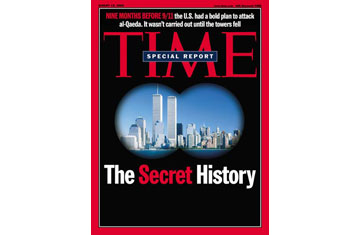
(6 of 19)
It wasn't just Pentagon nerves that got in the way of a more aggressive counterterrorism policy. So did politics. After the U.S.S. Cole was bombed, the secretive Joint Special Operations Command at Fort Bragg, N.C., drew up plans to have Delta Force members swoop into Afghanistan and grab bin Laden. But the warriors were never given the go-ahead; the Clinton Administration did not order an American retaliation for the attack. "We didn't do diddly," gripes a counterterrorism official. "We didn't even blow up a baby-milk factory." In fact, despite strong suspicion that bin Laden was behind the attack in Yemen, the CIA and FBI had not officially concluded that he was, and would be unable to do so before Clinton left office. That made it politically impossible for Clinton to strike--especially given the upcoming election and his own lack of credibility on national security. "If we had done anything, say, two weeks before the election," says a former senior Clinton aide, "we'd be accused of helping Al Gore."
For Clarke, the bombing of the Cole was final proof that the old policy hadn't worked. It was time for something more aggressive--a plan to make war against al-Qaeda. One element was vital. The Taliban's control of Afghanistan was not yet complete; in the northeast of the country, Northern Alliance forces led by Ahmed Shah Massoud, a legendary guerrilla leader who had fought against the Soviet invaders of Afghanistan in the 1980s, were still resisting Taliban rule. Clarke argued that Massoud should be given the resources to develop a viable fighting force. That way, terrorists leaving al-Qaeda's training camps in Afghanistan would have been forced to join the Taliban forces fighting in the north. "You keep them on the front lines in Afghanistan," says a counterterrorism official. "Hopefully you're killing them in the process, and they're not leaving Afghanistan to plot terrorist operations. That was the general approach." But the approach meant that Americans had to engage directly in the snake pit of Afghan politics.
THE LAST MAN STANDING
In the spring of 2001, Afghanistan was as rough a place as it ever is. Four sets of forces battled for position. Most of the country was under the authority of the Taliban, but it was not a homogeneous group. Some of its leaders, like Mullah Mohammed Omar, the self-styled emir of Afghanistan, were dyed-in-the-wool Islamic radicals; others were fierce Afghan nationalists. The Taliban's principal support had come from Pakistan--another interested party, which wanted a reasonably peaceful border to its west--and in particular from the hard men of the ISI. But Pakistan's policy was not all of a piece either. Since General Pervez Musharraf had taken power in a 1999 coup, some Pakistani officials, desperate to curry favor with the U.S.--which had cut off aid to Pakistan after it tested a nuclear device in 1998--had seen the wisdom of distancing themselves from the Taliban, or at the least attempting to moderate its more radical behavior.
